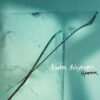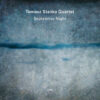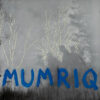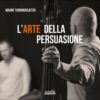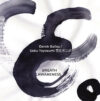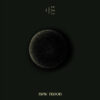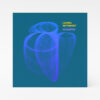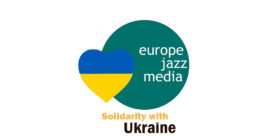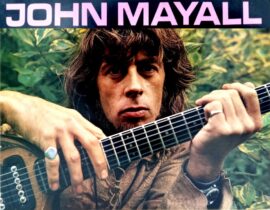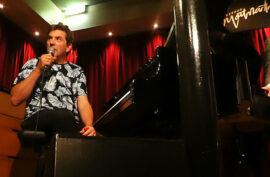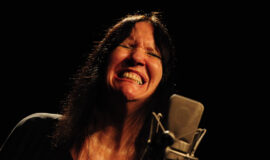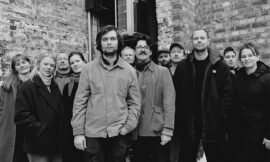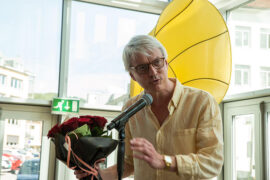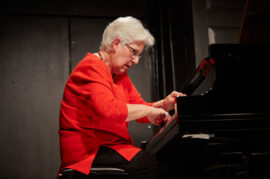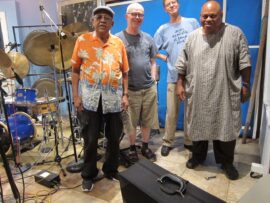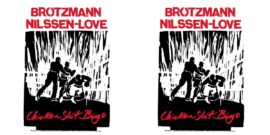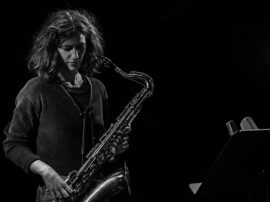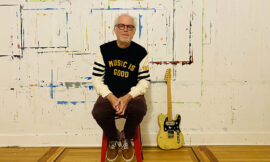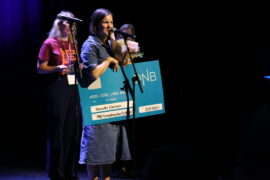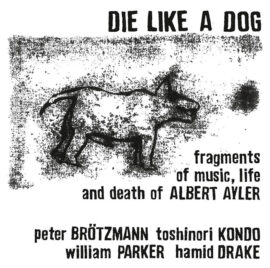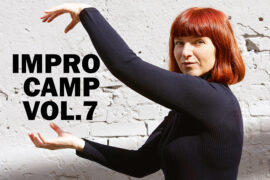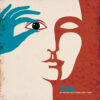
Zea, aka Dutch prolific and experimental vocalist-songwriter-guitarist Arnold de Boer (of The Ex fame), follows pioneer dadaist sound poet Tristan Tzara’s motto, «Thought is born in the mouth». But de Boer’s music begins with words, that in their turn offer a springboard for his poetic message. You can call it Marshall McLuhan’s doctrine made in the flesh, literally. De Boer has always had a fascination with language and poetry, movies and books. Zea’s new album We Are Still Each Other’s Only Hope focuses on such unique meetings of poetic words and music.
Zea was inspired by «And the Man Killed the Bird», a haunting soliloquy based on a pygmy legend as recounted by American writer and myths researcher Joseph Campbell in the PBS documentary series The Power of Myth with interviewer Bill Moyers, as well as by British philosopher Timoty Morton’s book warning about the possibility of ecological catastrophe, Hyperobjects: Philosophy and Ecology after the End of the World, and by Polish poetess Wislawa Szymborska’s poem «Powroty» ‘Going Home).
We Are Still Each Other’s Only Hope presents beautifully Zea’s primal, intuitive and instant, minimalist and urgent practice of songwriting, guitar playing and composing. De Boer, for example, recorded the vocals for «Hyperobjects», while he was drumming his hands on his chest, upstairs in his small attic studio, later added the rhythm while drumming on his electric guitar, and then sent the basic track to Mats Gustafsson in Nickelsdorf who added baritone sax, and to and to Wrocław-based guitarist Hubert Kostkiewicz, who conjured up more guitar loops. De Boer sees this kind of process as songwriting as «dripping drops of dye in a glass of water and seeing what happens», and «Hauntology» demonstrates this kind of approach. De Boer watched the film Ghost Dance in which Jaques Derrida plays a small role in explaining his concept of «Hauntology», paused the film and instantly wrote the words for what became the song. The rhythm of the words triggered a ‘straight’ guitar part and later Dutch drummer Ineke Duivenvoorde, French clarinetist Xavier Charles and Amsterdam-based jazz cellist Harald Austbø added their parts. «What the World Needs Now Is Understanding» is a 15-minute, solo fingerpick acoustic guitar dreamy meditation, commissioned so people could listen to it while driving on the Afsluitdijk, the phenomenal 32 km long, «handmade» land bridge over the Ijsselmeer, a closed off inland bay in the central Netherlands. De Boer describes the composing of this piece as him «sitting down in the middle of that church starting to play and getting into a grid and pulse and giving up the concept of time».
You can’t resist Zea’s immediate emotional, compassionate and poetic effect. Surrender to Zea’s emphatic vision of hope.
Eyal Hareuveni
Arnold de Boer (guitar, vocals, trumpet, synthesizers, sampler), Xavier Charles (clarinet), Mats Gustafsson (baritone saxophone), Harald Austbø (cello), Hubert Kostkiewicz (guitar), OLOLOLOP (PC midi drums, percussion, saxophone), Arakawa Atsushi (sampler), Ineke Duivenvoorde (drums), Francis Ayamga (synthesizer, beats, voice)

